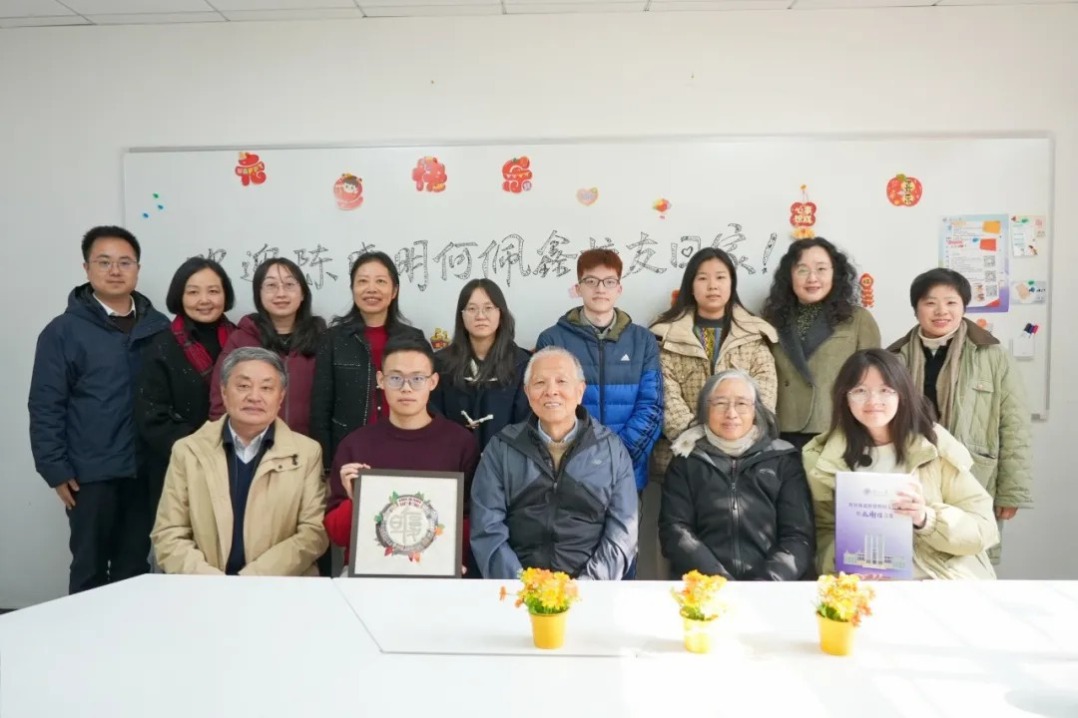Riding a ‘once-in-a-lifetime’ boom

Investment guru Vanessa Xu is confident the golden era for asset managers in China will continue for another 20 years. She tells Duan Ting the boom is being fueled by the nation's swelling middle-class group.
To investment captain Vanessa Xu, the golden times for asset managers are here to stay.
And, the opportunities up for grabs will be "once in a lifetime", she says. "The past and coming 20 years have been and will still be the golden period for asset management in China … we believe active management investing in the China market will shine."
Xu is co-founder and chief executive officer of FountainCap Research & Investment Co — a long-only equity fund managing house which focuses on global long-term opportunities that benefit from China's fundamental transformation.
With a larger economic volume and faster growth speed, she thinks the mainland market is now very much like that of the US from the 1950s to the 1990s when globalization led by American companies was gaining steam, and the middle-class rose amid post-industrialism and urbanization, driving infrastructure construction and consumption.
"The US stock market rallied more than 100 times during the 1950-2007 consumption boom," recalls Xu. "Great long term equity investment firms like Capital Group where I worked at before and several others grew amid the boom in the capital market."
The mainland stands to benefit from continuous and further fundamental transformation, including industrialization and urbanization.
According to global management consultancy McKinsey & Company, the mainland, at present, has 800 million people living in below third-tier cities, and there'll be more than 550 million in the middle class — 76 percent of the country's urban population — by 2022, which would make China home to half of the world's middle-class group.
The expansion of China's middle class has the potential to create the world's largest consumption bonanza since the post-war period in the 1950s in the US and Europe. Chinese consumption is expected to grow 9 percent annually through 2020, says Boston Consulting Group.
Xu says the wealth accumulated in the past three decades on the mainland has been going thorough transition, and succession brings opportunities as well.
The nation is also undergoing an innovation and technology revolution with two leading and fast growing technology innovation clusters — the Guangdong-Hong Kong-Macao Bay Area led by Tencent, Huawei and DJI and powered by the Hong Kong and Shenzhen capital markets, and the Shanghai-Hangzhou Bay Area led by Alibaba, Netease and Hikvision and powered by the Shanghai stock, bond, currency and commodity exchanges.
Best bourse performers
"Technology innovation and revolution not only boost the emergence of budding tech companies but more importantly, improve productivity or even transform many traditional sectors such as manufacturing industries," says Xu.
As the economy undergoes a massive transformation and new economic growth engines emerge on the mainland, Xu emphasizes that the Hong Kong and mainland stock markets may become the world's best-performing bourses in the next decade, and there are "many, large and high-quality" investment opportunities for the asset management business.
FountainCap is positive about the performance of sectors like consumption, technology, manufacturing, the bio-pharmaceutical industry, including cell engineering, the clean economy covering natural gas, air and water, and healthcare.
The mainland's stock market, Xu recalls, emerged in the early 1990s and has been fueled by the Hong Kong bourse in the past decades. What were mostly included in the Hang Seng Index were local real-estate and banking stocks in the 1980s but, at present, private enterprises such as Tencent are also listed on the gauge, reflecting the rapid transformation of the mainland economy.
More world-class companies are expected to emerge from China's private sector and more excellent private enterprises are due to go public overseas and be included in the index.
"China's private sector is larger and stronger than ever, creating more than half of the national GDP, underpinning higher quality and more sustainable growth in the coming 10 years," she notes.
The most significant event for investors last year was when MSCI — the global gauge of stock-market activity — announced in June that 222 "A" stocks — would be included in MSCI global indices from June 2018. Xu says the inclusion suggests that Beijing's financial reform efforts over the past few decades have been increasingly recognized by international investors and greater direct participation by global investors in the mainland's equity market is likely. This would encourage the government to undertake further deregulation and promote capital account.
According to a research report by FountainCap, China is the most important marginal variable at present, and the only direction for global investors is to increase the asset allocation percentage of Hong Kong, Taiwan, Macao and mainland shares under the country's continuous transformation and opening-up of its capital market.
Selective stocks
"We believe that active management will shine for China equity investments in the coming decades. Given the structural inefficiencies in the Chinese capital markets, we believe active managers with long-term focus, thorough fundamental research, low fee structure and superior stock selection capabilities, stand a good chance to outperform index funds over the long term," says Xu.
FountainCap's investment strategy is to focus on selective stocks based on the long term, and the company's solid research on fundamentals rather than short-term volatility, which is inefficient and costly.
The average holding period of the company's investments is three to five years and investment professionals are compensated primarily on rolling three- and six-year periods to underpin a long-term mentality, Xu says.
"It's important to understand the Chinese variables for making sound investments not only in China but globally. Before, we had helped global asset owners to invest in China, and now at FountainCap, we stand at a perfect joint to help both global and Chinese asset owners to benefit from China's growth by applying our intimate understanding of China's complexity and the global capital markets experience gained in the past 20 years."
However, in the asset management business, there's a huge shortage of creative products with low cost but intrinsic value and stable returns amid the slow recovery of the global economy and under the low yield environment.
FountainCap aims to provide professional and boutique products and are not charging performance fees so far.
Their investors are mostly institutions and professions, with Chinese and overseas investors each accounting for 50 percent.
Contact the writer at [email protected]
- Xi meets Grenadian PM
- Memorial service held for victims of strong Xizang earthquake
- Warm shelters built for all in Xizang's quake zone
- Addressing mental well-being of disaster-affected people in Xizang
- Illegal fireworks sales targeted ahead of Spring Festival holiday
- China moves to improve public education





































